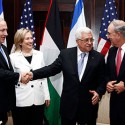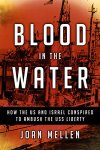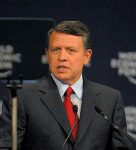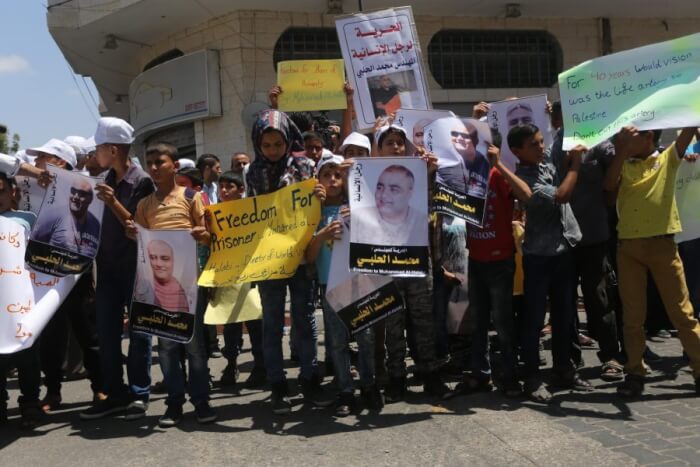![]()
The BDS movement (Boycott, Divest, Sanction) is a legitimate non-violent form of protest that most Israelis and American Jews should support. But the BDS movement itself is not defined and waffles between an extreme rejection of everything Israeli that calls for turning back the clock to 1948, to a focused campaign that targets Israeli extremist, from the settler fanatics to Israel’s growing anti-Peace government and institutions. But both sides are fighting hard to prevent an open dialogue of what it is, what it needs to be, and how it can be more effective in non-violently fighting for peace
The Battle for Israel-Palestine peace needs real commitment
By Ray Hanania
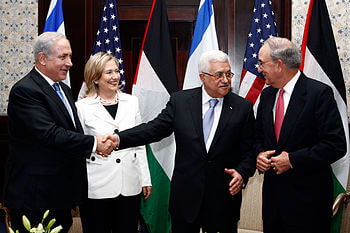
It’s too easy to get angry if you are Israeli or Palestinian, maybe more so for Palestinians because they are on the daily receiving end of Israel’s extremist government brutality.
But that doesn’t mean we have to always be so angry because anger and emotion don’t really change things, although they do tend to reinforce the status quo and even make it worse.
Core principles in this theory of breaking-out of the negative spiraling collapse of peace and the rising crescendo of anger and hatred is the growing support for non-violent measures to protest against the anti-peace policies of the extremist government of Israeli Prime Minister Benjamin Netanyahu.
Netanyahu and his extremist government feed on the anger that their policies create, and the bullying that Israel’s extremist supporters direct at those who demand justice.
The truth is that the more angry Palestinians get with Israel’s extremism, the more we strengthen Israel’s extremism, and undermine the moderate movement in Israel and in Palestine. Those moderates are slowly disappearing in the face of rising anger-activism.
Two issues are at the heart of this new debate, the BDS movement and the rising opposition to “normalization.”
These are not simple issues to understand and much of the public has lost sight of the fact that both movements are derivatives of the shift away from violence towards non-violence. A great resource to understand the BDS Movement is at this website www.bdsmovement.net. The site helps define what BDS is important
Yes, people forget that the BDS movement – Boycott, Divest and Sanction – is a non-violent response to Israeli policies that seek to undermine peace and compromise Palestinian rights.
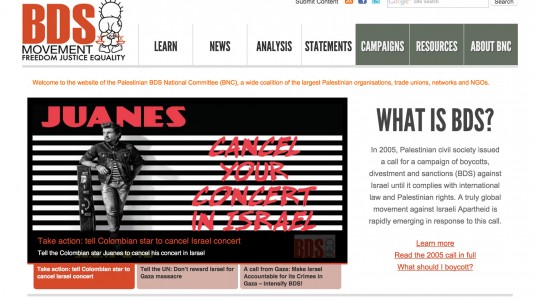
Israelis opposed to BDs focus on the fact that many BDS advocates do not target their anger at just the illegal settlement movement, or Israel’s military policies of brutality, the Israeli prison Gulag system or the discrimination against Christians and Muslims, but instead broadly direct the protests against Israel as a “Jewish State.”
That’s caused me issues with my community because while I support a targeted BDS campaign against extremism in Israel and its government, and against anything related to the terrorist settler movement in the Occupied Territories, I don’t believe it should be focused across the board and against all things Israel.
When I explain that many extremist Arabs start beating the drums of hatred attacking me as “the Palestinian Zionist,” a contradiction that is also wildly inaccurate. Supporting peace based on Two-States doesn’t make you a “Palestinian Zionist” and it doesn’t make you a terrorist sympathizer, either.
But the extremists on the Palestinian Side share the same goals as the extremists on the Israeli side. They both want to prevent peace and increase the violence believing that more violence reinforces the status quo. Fanatics in Israel love the current situation of off-and-on-again violence because it allows them to reject land concessions.
The Palestine-Israel conflict is all about land ownership, sharing and living together.
Extremists on the Palestinian Side know that peace would put them out of business, and the unemployment line is so abhorrent to them that they would rather continue to see Palestinian suffering and oppression because it means they will continue to have jobs, and a livelihood of endless funding they otherwise could not receive through their own lack of merits and talent.
But these extremists on both sides are the minority. The failure of the peace process gives them control of the entire field of activism, though, because moderates are pushed aside and the larger, general publics of Israelis and Palestinians have no place left to turn except to respond with emotion and anger to the hate-rhetoric that dominates the extremist narrative.
It’s a lot like the anti-Normalization movement, too. Normalization is an exaggerated notion that there is something wrong with human beings engaging each other to bring about an end to the growing conflict.
It thrives on hatred and emotion. If you are a Palestinian and not 100 percent opposed to normalization, you are demonized by the extremist demons who again thrive on hate and emotions and suffering.
I believe in a normalization that distinguishes between the good and the bad, something the fanatics don’t want you to do. They want you to see the good like the bad, and therefore hate all Jews, hate all Israelis and hate everyone who supports Israel. That feeds their agenda. Israelis extremists are no different.
But I believe that the majority of Israelis are good people. They simply lack confidence in peace and because they are in control, they can pretend to have normal lives while closing their eyes to the everyday oppression that their government inflicts unjustly on Palestinian civilians.
Israel does practice a bastardized form of Apartheid. It’s not 100 percent Apartheid, but when you discriminate on the basis of race and religion, and create two separate policies on how the different groups are treated, with one group “superior” to the other, that is a form of Apartheid.
It happens in Israeli society, mainly driven by growing extremism in Israel’s government. But the truth is, Israel is not an Apartheid-State, but it is Apartheid-like.
Somewhere in between these two extremist sides in Palestine and Israel is a future of coexistence, sharing, compromise and survival for both Jews and Arabs, Israelis and Palestinians.
As difficult as it is to resist the gut wrenching trauma caused by the continuous, and discouraging daily abuses and death, Palestinians and Israelis need to try hard to control heir emotions.
It’s not wrong to be angry when children are killed. It’s not wrong to oppose fanaticism and speak out forcefully against policies that are wrong, racist and discriminatory.
But it is wrong to direct your anger and emotions at entire societies just to make yourself feel better.
I can be angry at Israel’s discriminatory policies or the violence of Palestinian extremists. But I should not use that as a means of discrediting the only solution which is peace based on Two-States.
It’s easy to be angry, hateful and mean in the Palestine-Israel conflict. It takes courage and strength to do the right thing.
Clearly, these are not times where moderates rule the debate. But circumstances shift like Middle East sands and moderates should be ready to reactivate the peace process. One step will be to properly define BDS and the issue of “normalization.”
Ray Hanania is an award-winning Palestinian American columnist managing editor of The Arab Daily News at www.TheArabDailyNews.com. Follow him on Twitter @RayHanania. To find out more about Ray Hanania and read features by other Creators Syndicate writers and cartoonists, visit www.creators.com. COPYRIGHT 2014 CREATORS.COM


- Israelisnipers shooting and killing hospital workers in Gaza - December 11, 2023
- CAIR Condemns Israeli Executions of Wounded, Unarmed Palestinian in West Bank - December 11, 2023
- Arab and Muslim American voters face a “simple choice” between Biden’s inhumanity and Trump’s edgy politics - December 9, 2023













